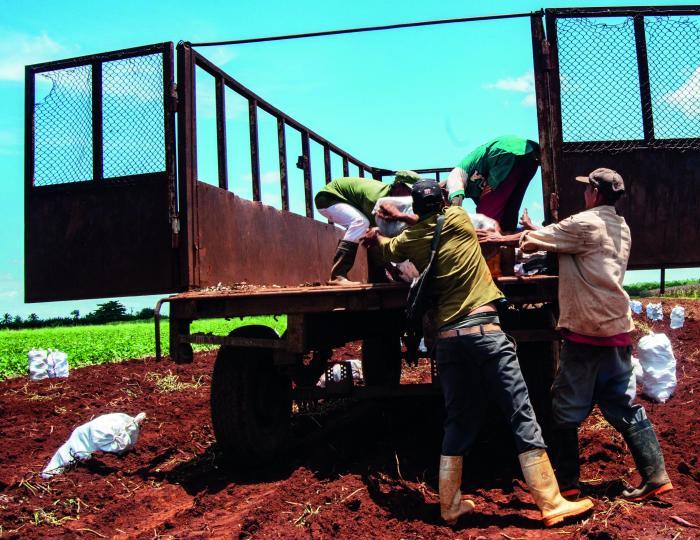
Oscar Luis Hung Pentón, President of the National Association of Economists and Accountants of Cuba, defined the 9th Congress of the organization, inaugurated yesterday in Havana, as a congress of revolutionary reaffirmation and commitments to the construction of socialism.
The meeting was attended by members of the Political Bureau of the Party, Esteban Lazo Hernández, President of the National Assembly of People's Power; Roberto Morales Ojeda, Secretary of Organization of the Central Committee of the Party, and Ulises Guilarte de Nacimiento, Secretary General of the Central Workers' Union of Cuba, as well as members of the Secretariat of the Central Committee of the Party, and other leaders.
The Cuban economy faces difficulties in the progress of macroeconomic stabilization; the reordering and protection of external financial flows pose very complex challenges for the bank, because most of the income going to an external bank is destined to the payment of other debts.
This was stated by Joaquín Alonso Vázquez, Minister of Economy and Planning, at the 9th Congress of the National Association of Economists of Cuba, who, while explaining the update of the national economy, specified that the new mechanism for the allocation of foreign currency and the partial dollarization of the economy is already concluded, but how to control the risks is being evaluated.
He explained that the Gross Domestic Product in the last five years has registered a 10% drop, similar to that of the special period; and primary activities, such as food production, in addition to the production of exportable items, have been the most affected.
Regarding the trade balance, the minister of Economy and Planning pointed out that Cuba imports more than it exports, and this situation causes that not enough foreign currency is generated and debts are accumulated.
“In addition, the nation has a budget deficit that generates trade imbalances, financed through the issuance of bonds,” he said.
In evaluating the Consumer Price Index, the minister noted that a decreasing trend is maintained with respect to previous years. However, prices continue to be high: “the salary increases at the same time as prices, as an expression of supply and demand in markets that already exist and that operate under these premises”.
He explained that, to date, there are 23 foreign currency financing schemes to promote productive recovery, which are adapted to each case, and in some cases, a portion is destined to the Central Bank for priority programs.
Similarly, for agricultural producers, a financial mechanism has been designed to eliminate unnecessary intermediaries, added Alonso Vázquez.
However, the three exchange rates that persist in the economic system generate disarticulation among the actors, and that is why the dollar has become an interconnection mechanism, “which has resulted in a partial dollarization of the economy,” he said.
In this sense, it is necessary to link these rates through foreign currency and, although the final objective is de-dollarization, “the option for now is to advance in a partial dollarization”.
Restoring macroeconomic balances is a priority for the country's productive sectors to become dynamic and for the Cuban economy to grow in a sustainable manner. For this reason, Alonso Vázquez declared, the government program for its stabilization depends on the increase of exports, the reform of the exchange market and the reduction of the fiscal deficit.















